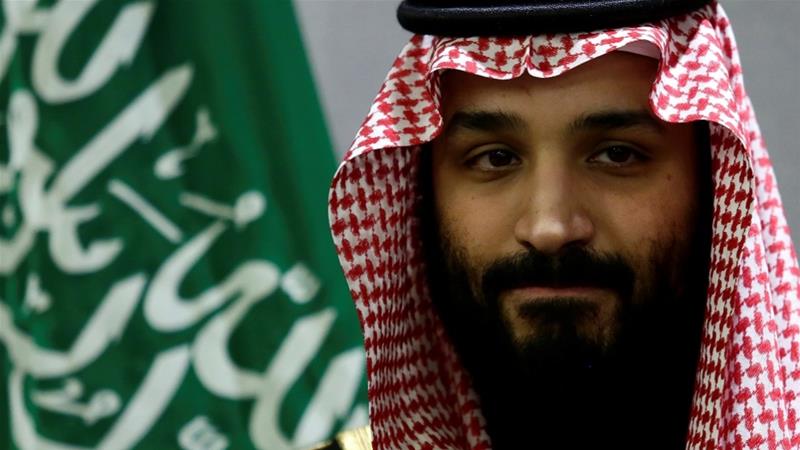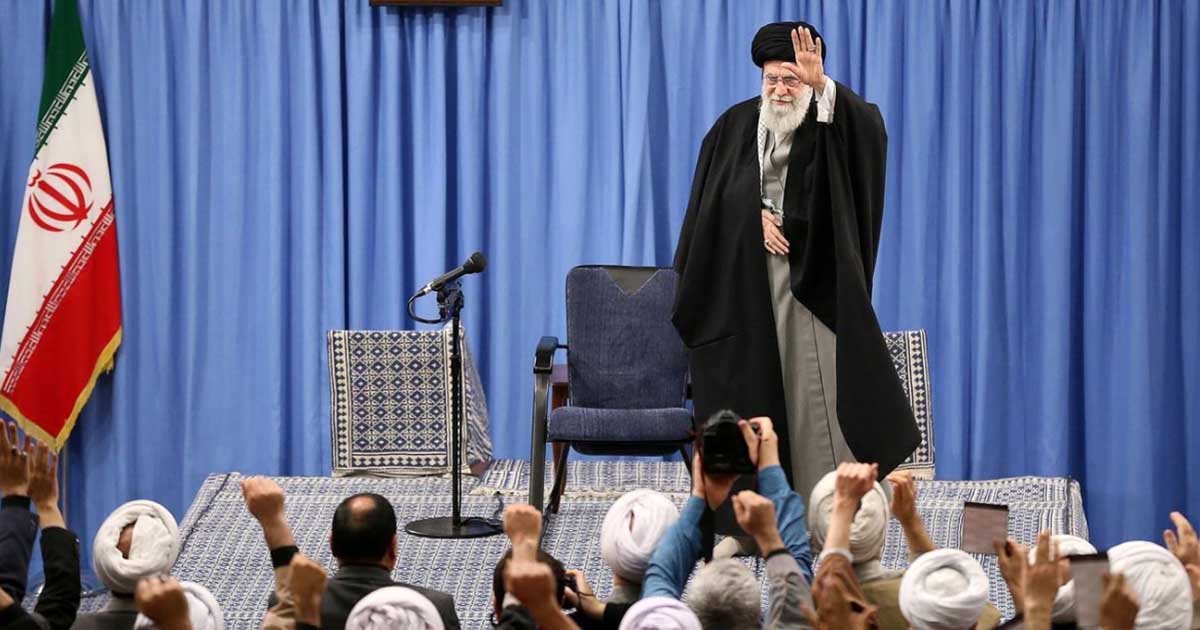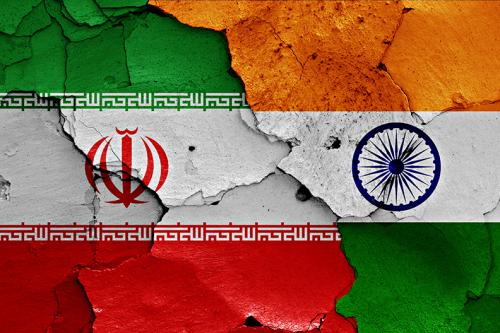Simran Shoaib |
Bearing witness to the Saudi-Canadian spat over the case of human rights of diplomacy prevailing via a tweet from Canada, analysts assess the impact of this tirade on the economy of key countries. On 8th August 2018, the Saudi central bank instructed its overseas asset managers to sell Canadian equities, bonds, and cash holdings “no matter the cost,” International Media reported.
In an unexpected debacle among Kingdom of Saudi Arabia(KSB) and Canada, outrage was expressed by Saudi Arabia’s Crown Prince Mohammed bin Salman who levied multiple economic and political penalties on Canada for its tweet.
Canada is gravely concerned about additional arrests of civil society and women’s rights activists in #SaudiArabia, including Samar Badawi. We urge the Saudi authorities to immediately release them and all other peaceful #humanrights activists.
— Foreign Policy CAN (@CanadaFP) August 3, 2018
Canada was not only critiqued and countered by KSB via tweets but retaliated through various means.
Bearing witness to the Saudi-Canadian spat over the case of human rights of diplomacy prevailing via a tweet from Canada, analysts assess the impact of this tirade on the economy of key countries
Saudi Arabia’s Crown Prince Mohammed bin Salman expelled Canada’s ambassador, froze new trade and investment, suspended a student exchange program resulting in the career loss of 16,000 students and halted flights by state-owned Saudi Arabian Airlines to Canada, especially Toronto for what it called “blatant interference” in its domestic affairs.
On Wednesday, KSA suspended all medical treatment programs in Canada and looked to transfer Saudi patients out of the country. Subsequently, KSA announced the call back of all of its citizens receiving any medical treatment in Canada.
KSA, through its Twitter handle, issued several warnings to Canada.
Highlights of FM @AdelAljubeir press conference regarding #Canada pic.twitter.com/EkgkFb5JHv
— Foreign Ministry 🇸🇦 (@KSAmofaEN) August 8, 2018
“#Riyadh | FM @AdelAljubeir: There is no need for mediation. #SaudiArabia did not interfere in the affairs of #Canada in any way. Therefore, Canada must correct its actions towards the #Kingdom”, tweeted Foreign Ministry KSA.
Read more: Saudi-Canada row leaves US in tight diplomatic spot
Most importantly KSA has announced of “freezing of all new trade and investment transactions between the KSA and Canada. The KSA reserves its right to take further action.” Experts shared information on this spat, as to how Saudi Arabia will be pulling back its investments from Canada and will need a place to invest its funds. Subsequently, the global market is expected to experience an influx of around $100 billion off funds from KSA.
Earlier this year, PM Justin Trudeau defended his government’s decision to sign off on the sale of more than 900 armored vehicles including dozens described as “heavy assault” and equipped with cannons to Saudi Arabia.
International Economic reports according to MSCI- Emerging Markets Index indicated the performance of Saudi Arabia, where international analysts from ‘Bloomberg’ also reported on these statistics
However, now that KSA has announced to freeze trade and investment transactions with Canada, which arms market will KSA approach? Britain made sales with KSA worth £1.1bn ($1.56bn) in the first half of 2017. Whereas the United States was equally excited about signing arms deal with KSA during Crown Prince’s visit to Washington. “Saudi Arabia is a very wealthy nation, and they’re going to give the United States some of that wealth, hopefully, in the form of jobs, in the form of the purchase of the finest military equipment anywhere in the world,” stated Trump.
Why can Saudi Arabia Afford such a Costly Retaliation?
International Economic reports according to MSCI- Emerging Markets Index indicated the performance of Saudi Arabia, where international analysts from ‘Bloomberg’ also reported on these statistics. It was indicated how the market of Saudi Arabia was going to be categorized as one of the top emerging markets of 2018, where the emerging markets would grow by $600 Billion with the Saudis and Argentinians
Read more: Multiple diplomatic spats raise questions about Saudi concept of sovereignty
The emerging market stocks were about to get a boost of $600 billion, as reported in June 2018. The assets class was predicted to expand after MSCI Inc. said that it would add both Saudi Arabia and Argentina to its equity index of developing nations. Predictions included a probable global trade war and higher US rates following a $2.7 trillion selloff knocked in January.
The potential for an MSCI inclusion made the market in Riyadh a magnet for foreign investors, turning it into the world’s second-best performer of 2018. MSCI’s managing director and global head of equity solutions, Sebastien Lieblich, stated that “By supporting the inclusion of Saudi Arabia in the emerging markets, international institutional investors confirmed that they are now able and ready to access and operate in these markets.”
Furthermore, an initial public offering from Saudi-Aramco (a state-owned oil company) could increase KSB’s weight from 2.6% to 4.4% within the MSCI EM Index, Lieblich added. Saudi Arabia aimed to facilitate foreign investments including the selling of shares in Saudi Aramco, which is expected to stage an IPO in Riyadh that could be the world’s biggest.
The various attempts of Crown Prince Mohammed Bin Salman of steering KSB away from solely oil revenue and discovering better sources for revenue.
According to Capital Markets Authority Chairman Mohammed El-Kuwaiz, the IPO could happen before the end of 2018. In June 2018, the Tadawul All-Share Index advanced 0.5 percent in Riyadh, as well. Antoine Maurel, head of global markets for Middle East, North Africa, and Turkey at HSBC Bank Middle East Ltd., claimed that there is a game-changer for Saudi Arabia’s capital markets and it would lead to a $35 billion inflow.
Conversing with international media, Khalid Al Hussain, Chief Executive Officer of the bourse commented how Saudi Arabia may see inflows of as much as $40 billion in the coming year. The various attempts of Crown Prince Mohammed Bin Salman of steering KSB away from solely oil revenue and discovering better sources for revenue.
Read more: Saudi Arabia to relocate students from Canada after cutting ties
Saudi authorities “will continue working with all relevant stakeholders to further improve applicable rules and regulations to facilitate foreign investments,” Finance Minister Mohammed Al-Jadaan said in an email. Three years ago Saudi Arabia opened its $524 billion stock market to foreign investors. Since then, it eased requirements for these investors via implementations of various measures.
U.S’s Neutral Stance Empowered Saudi’s Retaliation
Following the backlash by Saudi Arabia on Canada, the alleged friends of Canada, USA gave statements on the matter at hand. The Trump administration issued its first statement on the matter nearly 24 hours later, addressing this issue of human rights. The State Department official of USA said that America will “encourage” the Saudis to uphold international standards on human rights.
“The United States supports respect for internationally recognized freedoms and individual liberties including dissent and due process,” the official wrote. “We have asked the Government of Saudi Arabia for additional information on the detention of several activists. We continue to encourage the Government of Saudi Arabia to respect due process and to publicize information on the status of legal cases. We address these broad concerns in our annual Human Rights Report”, he further added.
Read more: Saudi-UK media tie-up: Targeting the non-Arabic speaking Middle East
What does Canada say about all this?
Walid Hejazi, professor of international competitiveness at the University of Toronto, said the economic sanctions will have little effect on the Canadian economy as Saudi Arabia is the 20th largest trading partner of Canada and only represents roughly $4 billion in trade annually. Whereas, Canada and the U.S. trade roughly $2 billion worth of goods daily, Hejazi reported.
“This is a political statement on the part of the Saudis,” he said. “Their Canadians holdings are not large enough to have any meaningful impact.” Hejazi assessed the overall impact on Canada where the individuals traveling to and from the kingdom and companies looking to build business ties in the region will mostly be hurt by this move.
Our government will always support Canadian workers and industries, and defend their interests at home and abroad
Since the Saudi Grains Organization also announced it is halting purchases of wheat and barley from Canada, it was unclear whether this move affected only new purchases or delivery on previously agreed contracts as well. According to Statistics Canada, the total amount of Canadian wheat sales to Saudi Arabia, excluding durum, was 66,000 tonnes and Canadian barley sales totaled 132,000 tonnes in 2017.
Chuck Penner, an analyst based in Winnipeg with LeftField Commodity Research, told Global News that if Saudi Arabia were to sell off its stake in G3 Ltd. (an agricultural company, in which Saudi government has a share), the impact on Canada would be “relatively seamless.”
There was also uncertainty over Canada’s largest arms deals that saw General Dynamics Land Systems sell light armored vehicles to Saudi Arabia in a $15-billion deal in 2014. The spokesperson, Doug Wilson-Hodge declined to comment on the issue. Canada continues with the stance that its advice and suggestion given to Saudi Arabia was not an offensive one and neither was it related to interfering in the domestic politics and stance of the Kingdom.
“Canada will always stand up for human rights in Canada and around the world” and that her department continues to seek clarity from Saudi Arabia on “various issues.”, stated a Canadian official.
Read more: Saudi Arabia expels Canadian Ambassador and halted trade with immediate effect
“The Embassy’s Trade officers, in addition to the wider Trade Commissioner Service, are actively engaged with Canadian business interests and will continue to work with them and the relevant authorities in the coming days,” Global Affairs said in a statement. “Our government will always support Canadian workers and industries, and defend their interests at home and abroad.”
Who is at loss, KSA or Canada?
KSB accused Canada of “blatant interference in its domestic affairs against basic international norms”, considering how they’re treating Canada, says a lot regarding their stern stance. Considering this charge sheet given by KSB, many global powers have taken a position of being dumbfounded.
This latest retaliation from Saudi Arabia could be beneficial for investors outside of the kingdom looking to pick up assets for cheap, said Rex Brynen, a political science professor at McGill University who specializes in Middle East politics.
It chose not to endorse the Canadian position, even though Ottawa had already doubled down, therefore, signaling a green light to Saudi Arabia for continuing its retaliation.
It is clear that some key stakeholder, superpowers have indeed indulged in observing silence, awaiting the $100 billion funds influx in the global market by KSB. “Since it’s a fire sale, it’s the Saudis that will be losing money and other people are going to make a profit at their expense,” said Brynen.
Analysts claim that such actions by KSB would lead to Saudi’s suffering through the loss of money and increase inconvenience for its citizens just for the sake of making a point. Considering how Canada is a member of NATO and considers USA an ally and effective trading partner, USA didn’t really live up to its relationship with Canada.
Read more: Is Canada poised to replace the US in the settlement of…
Portraying a neutral stance, USA’s didn’t express any distaste for KSB’s treatment of Canadian citizens and its government. It chose not to endorse the Canadian position, even though Ottawa had already doubled down, therefore, signaling a green light to Saudi Arabia for continuing its retaliation.
Analysts opine that the growing economic stability of Saudi, its funding in the global market and ranking may have somehow influenced the USA’s stance because how else would the USA justify its lack of involvement in the issue? In the latter, it will be evident how far the conspiracy theories of multiple experts prove to be correct, as Saudi and Canada stand adamantly on their stances.














